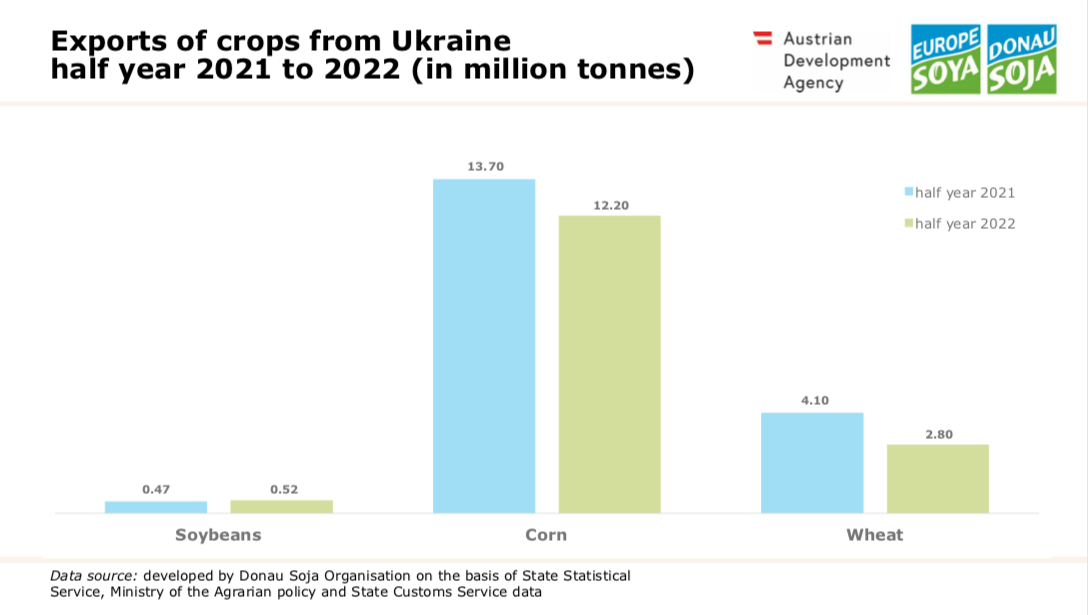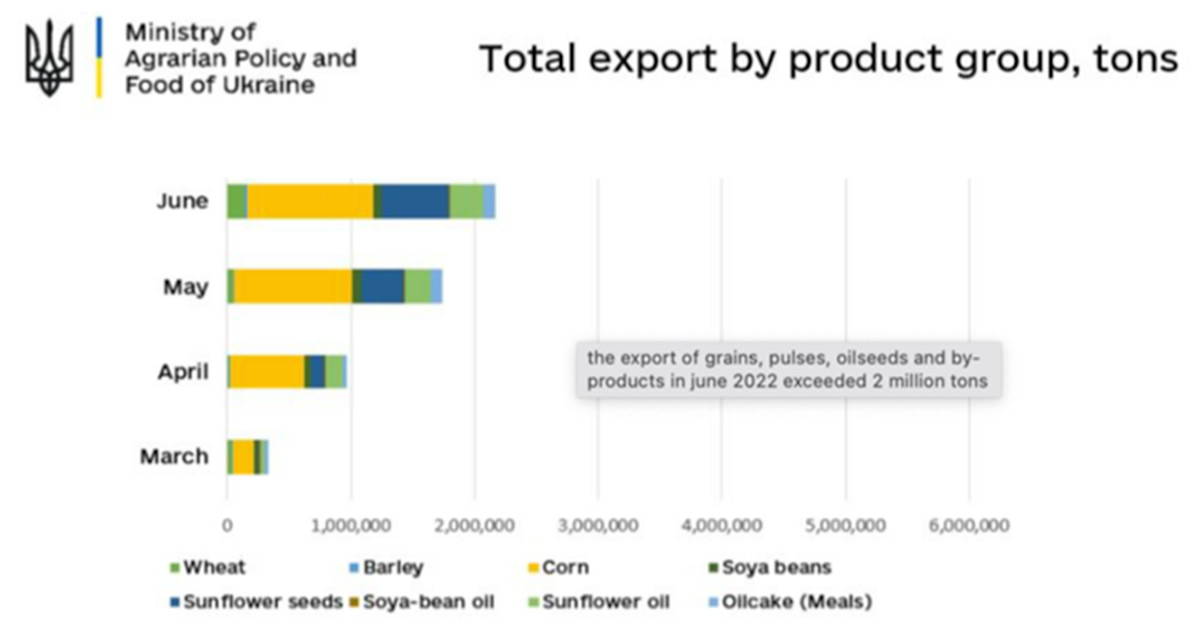
Two German associations who cast doubt on the supply of non-GMO soy from Ukraine stand accused of exploiting the war to destroy the non-GMO sector. Report by Claire Robinson
The supply of non-GMO soy from the Ukraine to Western Europe is "sufficient" in spite of the war, according to the Kyiv branch of the Donau Soja organisation. Donau Soja supports the production of European-grown sustainable non-GMO soy. The organisation's announcement contradicts claims earlier this year by two German associations that the supply of EU GMO-free raw materials was being impeded by the war.
Soybean shipments from Ukraine totalled 71,000 tons in June 2022, compared with nearly 67,000 tons exported in May 2022. Volodymyr Pugachov from Donau Soja, which supplies non-GMO soy grown in the Ukraine and elsewhere in Europe, commented, “Soybean exports from Ukraine in the first half of the year reached the level of the previous year. Around 500,000 tons were exported to Western Europe by land and via inland shipping, including on the Danube river. The supply of the European non-GM markets – especially in the DACH region [Germany, Austria, and Switzerland] – is therefore still sufficient."
According to the latest data from the Ministry of Agriculture of Ukraine, in June 2022 Ukraine exported 2.17 million tons of grains, legumes, oilseeds and by-products, which is 470,000 tons or 25% more than in the previous month. This increase corresponds to a quadrupling of the export quantities of agricultural goods overland since the beginning of the war.
Donau Soja supports Ukrainian soybean farms as part of the Protein Partnership Programme. Pugachov said, “We expect Ukrainian farmers to produce around 650,000 tons of sustainably certified non-GM soy in 2022. The Donau Soja Partnership Programme is mainly supported by the German food retailers. The certified quantities of Donau Soja/Europe soya beans are then available to the entire market from the harvest in autumn."

False claims
In May this year, according to FeedNavigator, Donau Soja had to correct false statements by Germany's agriculture cooperative representatives, the Deutscher Raiffeisenverband (DRV), who, along with the German Association for Animal Nutrition (DVT), published reports claiming that supply of EU GMO-free raw materials was being hindered significantly by the war in Ukraine.
In March, the DRV claimed the "raw material basis for non-GM production had collapsed" and, in April, it claimed that "maintaining the supply of GMO free goods to the broad market was not realistic in the longer term".
Matthias Krön, president of Donau Soja, responded by challenging DRV managing director Dr Henning Ehlers to a "fact-based discussion". He accused DRV of engaging in political spin and said it was using "the tragic Ukraine war to gain agricultural policy related advantages".
Krön told Ehlers that if the DRV's partners opt out of GMO-free, then European farmers, including some German ones, will have nowhere to sell their GMO-free soybeans. Therefore, he said, DRV's stance "only harms German and European consumers as well as farmers in Germany and Ukraine".
Krön added, "When you conjure up the total failure of Ukraine, you are ignoring facts. Every day, increasing quantities of agricultural goods from Ukraine enter the EU via land and inland waterways... Ukrainian farmers are... sowing more Donau Soja than ever."
He said any move to buy more GMO soy from overseas instead of supporting locally grown soy would "only serve to increase Europe's dependence on imported proteins".
Susanne Fromwald of Donau Soja told FeedNavigator that the war in Ukraine "is really being misused to try to destroy the non-GM sector in Germany". She said that DVR and DVT were causing insecurity for food producers and retailers. She added that the leading European crushers were not concerned about the supply of non-GMO soy.
The Association of Food Without Genetic Engineering (VLOG) also weighed in on the discussion. VLOG managing director Alexander Hissting said that the DRV and DVT were trying to talk the successful "Ohne Gentechnik" ("produced without genetic engineering") sector into a crisis without any factual basis. He said that the DRV and DVT want to reduce demand for GMO-free produce in the German retail and food sectors, and thus the supply. Hissting said that as long as the demand for GMO-free feed crops exists, more will be grown, including outside the Ukraine.
Brazil increases non-GMO soy acreage
The positive news about the availability of European-grown non-GMO soy was followed by an announcement that Brazil plans to increase non-GMO soybean acreage by 24 percent for the 2022/23 crop to meet demand from Europe. Accordingly, the new season starting in September will see the area under non-GMO soybeans reach almost one million hectares. VLOG commented, "That's another good sign for the availability of non-GMO feed."










